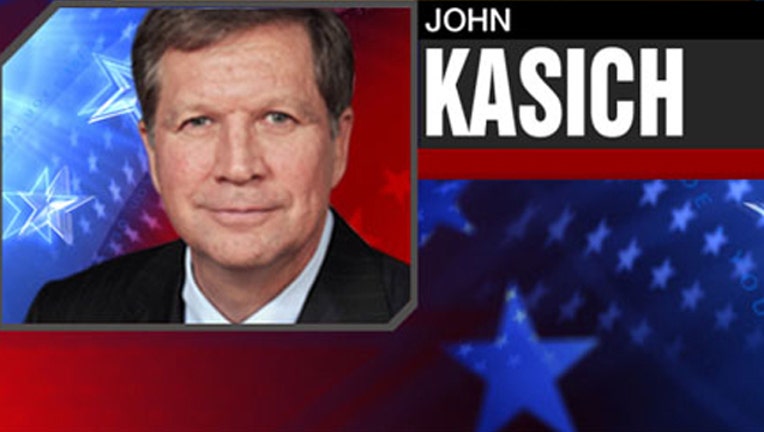Gov. John Kasich to end presidential campaign

Ohio Gov. John Kasich
CONCORD, N.H. (AP) - Ohio Gov. John Kasich will end his bid for the Republican presidential nomination Wednesday, making Donald Trump the party's presumptive nominee.
Three campaign officials who spoke to The Associated Press said the Ohio governor plans to announce his decision in a statement from his home state later Wednesday.
The officials spoke anonymously because they are not authorized to disclose Kasich's decision.
An underdog from the start, Kasich held on to become the last candidate standing against Trump, despite his inability to win any contests beyond Ohio. His decision to end his campaign comes a day after his other remaining rival, Texas Sen. Ted Cruz, announced that he was suspending his campaign.
Touting his two terms as governor and 18 years in Congress, Kasich failed to gain traction with GOP voters in a race dominated by Trump's ability to seize on the electorate's anger and disdain of political insiders. Although Kasich tried to pitch himself as the best Republican to take on Hillary Clinton, the weight of the non-Trump efforts have largely gone toward Texas Sen. Ted Cruz.
Viewed widely as a longshot candidate from the start, Kasich's popularity shot up after his strong second-place finish in New Hampshire's primary in early February. But from the South to the Midwest, many voters were captivated by his boisterous rivals, and his efforts to cast himself as a nicer alternative fell short.
Kasich had pledged to take his campaign all the way to the Republican convention in Cleveland this summer, but his losses in almost all the primaries left him struggling to generate the money and resources needed to sustain a long-term bid. In an extraordinary effort to send the GOP contest into a contested convention, Kasich and Cruz forged an alliance in late April, going to the states where they were most likely to succeed and deprive Trump the delegates needed to reach the nomination.
As the race grew increasingly nasty on both sides, Kasich largely maintained his vow not to go negative or, as he told voters to "take the low road to the highest office in the land." It may have been a more effective tactic for dealing with his rivals — Trump frequently referring to Kasich as "a nice guy," while lashing out at Cruz with names like "Lyin' Ted."
He did eventually launch a series of blistering criticisms against Trump's candidacy, blasting the businessman for creating a "toxic" environment and preying on people's fears.
Kasich argued that he would be able to win over Trump's supporters if he gained more attention, saying he understood their economic worries from his own experiences growing up in the blue collar town of McKees Rocks, Pennsylvania. He insisted that his upbringing positioned him to offer real solutions to those who need them most.
"It seems as though the attention goes to those who call names," Kasich lamented to reporters in March. "I refused to do it this entire campaign, even it meant that I would be ignored and even if it meant that I would lose."
IN APRIL, he said there is "zero chance" of becoming vice president, to anyone — specifically Trump — arguing that he's more of a president, not a vice president.
Kasich, 63, plans to return to Ohio, where his second term as governor ends in 2018.
___
Steve Peoples contributed to this report from Washington.

